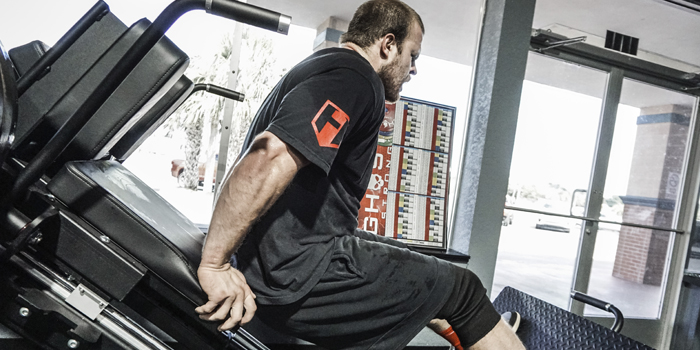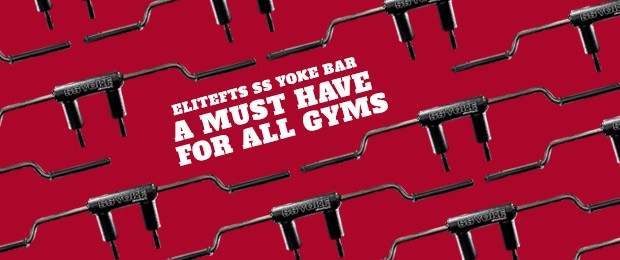
When progress lags, most people will do more of something—sometimes more of everything. I've been in this game for almost four decades, and I can't tell you how many times articles or videos explain how people need to do MORE to progress.
More intensity...
More supplementation...
More calories...
More cardio...
What if the answer to making better gains was exactly the opposite?
The average person reading this (and I put myself in this category) has mediocre genetics and, thus, modest recovery abilities. If we didn't, we would not be looking to change what we are currently doing because if it worked well, we would ride it and continue getting huge and ripped. I am writing this—and you are reading this—because you aren't excited about your progress right now. You want more and feel you are missing something that could expedite your progress.
RECENT: This Gym is Like No Other
If I took a poll of everyone reading this article, I would likely find that most feel they aren't doing enough of something, and that is why their progress is less than the impressive physiques in their gym. The nonsensical part is that even when we do more of something to get better results, the results remain meh at best.
As difficult as it may be, I'll give you ten things you need to do LESS to progress. If this makes you scoff, remember that what you currently do isn't working very well. The worst that could happen is you get to troll me in ten weeks by leaving a shitty comment below, telling me I'm a dumbass. Then, you can go back to doing what you did before my article and continue making little progress.
Do LESS of these ten things:
1. Volume
Cut your volume of working sets in half. Your results have been mediocre because your recovery ability is mediocre. Even if you can do more work, that doesn't mean you can recover from more work. If it were as easy as doing more work, many of us would be bigger than we are.
2. Frequency
With an average recovery rate, you will not benefit from training more frequently. Hit every body part once per week, increasing the time for recovery between workouts. Without enough time to recover, training more often is not the answer.
3. Intensity
I know it sounds blasphemous but hear me out. I am not telling you not to train hard. I'm telling you not to train your ass off—balls out or to failure—every working set and every time you step into the gym. We have already established (and hopefully you have accepted) that your recovery rate is average. Logically, you will not be able to recover as well if the intensity is too high for too long.
4. Food
The main rule for growing in the off-season is flawed: eat as much as possible, which will fuel muscle growth. Well, yes and no.
Yes, you need fuel to grow muscle tissue.
No, you don't need to slam your system with as many calories as possible, risk insulin sensitivity, and add a lot of body fat to grow optimally.
Insulin sensitivity is critical not only for muscle growth but for getting lean and holding muscle tissue at the same time. However, I don't have the time to delve into that topic now. Find the number of calories you need to support growth and recovery instead of bogging down your system by throwing a ton of calories down your throat.
5. Stress
Our lives are stressful; the world we live in is stressful. That does not mean you can't limit stress or find better ways to deal with stress. You're sadly mistaken if you don't think stress plays against your progress and your ability to recover. Stress hormones can derail or sidetrack not just gains but our health, as well. Stress will also decrease the quality of your sleep. I didn't include sleep as one of the ten things to focus on because it is the one thing you can benefit from by increasing it.
6. Physical Activity Outside of the Gym
In short, you will not be able to progress as well in the gym if you play ice hockey three times per week or play pick-up basketball twice a week. I recommend taking a very close look at HIIT cardio if you are doing that. Low-intensity activity is great. High-intensity activity outside of the gym can be a gains-breaker if you have mediocre recovery.
7. Focus on the Scale
The scale is only one tool to help gauge progress. It means nothing by itself, and if you rely on it for gains while bulking or cutting, you will be very disappointed by the outcome. Focus more on your visual look because, in the end, that's all we care about when it comes to improving our physique.
8. Gear
If you use gear or super-supplementation, most people use more than they need. More gear, like too much food or training, can also bog the system down. I can't tell you how often I will cut a new client's supplementation intake, and they not only feel better, but their progress improves.
9. Impatience
This is a marathon, not a sprint. Enjoy the journey and the process because building muscle and getting lean takes time. It also takes time to allow a new training or diet adjustment to show results. If you can be patient, you can more accurately assess what works and doesn't.
10. Self-Criticism
Play the hand you have been dealt. Looking over at the guy with the suited AK in the hole will not change the fact that you have been dealt non-suited connectors. You still have the flop, the turn, and the river. You can beat everyone at the table if you play your hand to the best of your ability.
Your best progress will usually be found outside your comfort zone or by doing something you haven't done before. Most of us have repeatedly continued to do the same damn things, hoping for a different outcome. If you want a different result, heed my advice. After all, I know all too well what it feels like to be dealt a two-of-clubs and a six-of-spades.
Just Sayin'.
Image credit: Meana Albersworth
Ken “Skip” Hill has been involved in the sport of bodybuilding for almost forty years and competing for twenty-plus years. Born and raised in Michigan, he spent 21 years calling Colorado home with his wife and their four children. Four years ago, he and his wife traded the mountains for the beach, relocating to South Florida. His primary focus is nutrition and supplementation, but he is called upon for his years of training experience, as well. He started doing online contest prep in 2001 and is considered one of the original contest prep guys (when the bodybuilding message boards were still in their infancy). Skip’s track record with competitive bodybuilders is well-respected, and he also does sport-specific conditioning, including professional athletes.











"If it were as easy as doing more work, many of us would be bigger than we are." That's so true. I've been doing this for a lot of years, and I've thought basically the same thing 100 times. I lift in large part for my mental and emotional health, and so I tend to train too often and too long. I wish it were that easy!
"The first sign of maturity is the discovery that the volume knob also turns to the left." - Jerry M. Wright
After 28 yrs...if I knew then what I know now. Less is more and because of that my body is still responding, injury free, and I still enjoy the training.
I think we all have a bit of an ego, and we all want to lift as heavy as we can. I just think that it isn't the only way to grow and progress from a hypertrophy standpoint. As great as training heavy is (and the progress that comes with it), it's a young-man's game in the sense that you can only train exessively heavy for so long before the law of dimishing returns sets in. It could be old age or it could be that there just comes a point where each person's body can only handle so much of a weight-bearing load before things start to fall apart. Hell, maybe it's a combination of both.
You realized that if you wanted to continue to enjoy training injury-free, something had to change. Well played. You made a great decision. Keep grindin'!